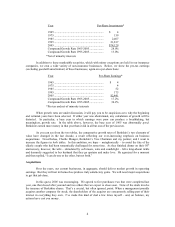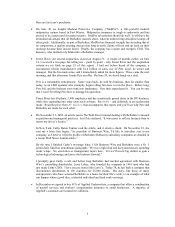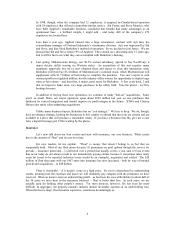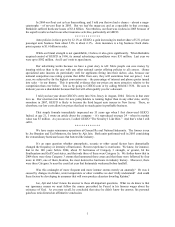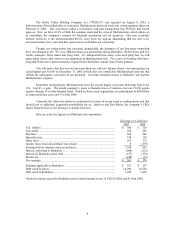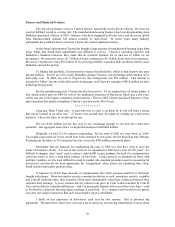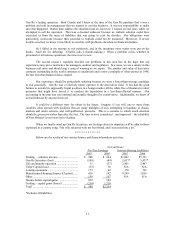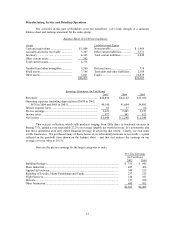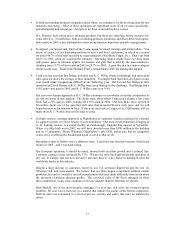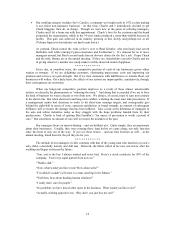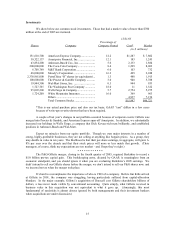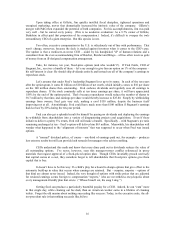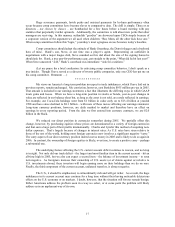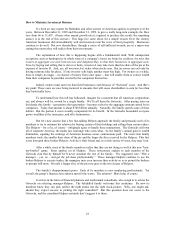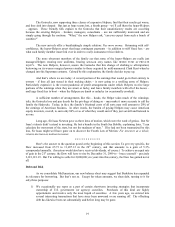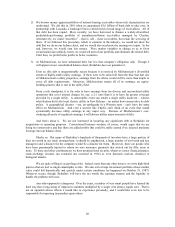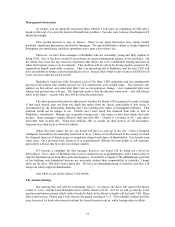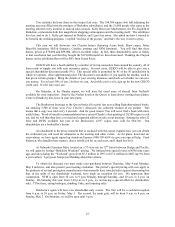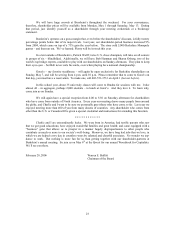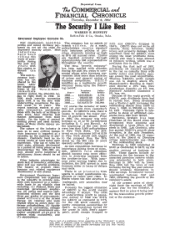Berkshire Hathaway 2005 Annual Report Download - page 15
Download and view the complete annual report
Please find page 15 of the 2005 Berkshire Hathaway annual report below. You can navigate through the pages in the report by either clicking on the pages listed below, or by using the keyword search tool below to find specific information within the annual report.• Our retailing category includes See’ s Candies, a company we bought early in 1972 (a date making
it our oldest non-insurance business). At that time, Charlie and I immediately decided to put
Chuck Huggins, then 46, in charge. Though we were new at the game of selecting managers,
Charlie and I hit a home run with this appointment. Chuck’ s love for the customer and the brand
permeated the organization, which in his 34-year tenure produced a more-than-tenfold increase in
profits. This gain was achieved in an industry growing at best slowly and perhaps not at all.
(Volume figures in this industry are hard to pin down.)
At yearend, Chuck turned the reins at See’ s over to Brad Kinstler, who previously had served
Berkshire well while running Cypress Insurance and Fechheimer’ s. It’ s unusual for us to move
managers around, but Brad’ s record made him an obvious choice for the See’ s job. I hope Chuck
and his wife, Donna, are at the annual meeting. If they are, shareholders can join Charlie and me
in giving America’ s number one candy maker a richly-deserved round of applause.
* * * * * * * * * * * *
Every day, in countless ways, the competitive position of each of our businesses grows either
weaker or stronger. If we are delighting customers, eliminating unnecessary costs and improving our
products and services, we gain strength. But if we treat customers with indifference or tolerate bloat, our
businesses will wither. On a daily basis, the effects of our actions are imperceptible; cumulatively, though,
their consequences are enormous.
When our long-term competitive position improves as a result of these almost unnoticeable
actions, we describe the phenomenon as “widening the moat.” And doing that is essential if we are to have
the kind of business we want a decade or two from now. We always, of course, hope to earn more money
in the short-term. But when short-term and long-term conflict, widening the moat must take precedence. If
a management makes bad decisions in order to hit short-term earnings targets, and consequently gets
behind the eight-ball in terms of costs, customer satisfaction or brand strength, no amount of subsequent
brilliance will overcome the damage that has been inflicted. Take a look at the dilemmas of managers in
the auto and airline industries today as they struggle with the huge problems handed them by their
predecessors. Charlie is fond of quoting Ben Franklin’ s “An ounce of prevention is worth a pound of
cure.” But sometimes no amount of cure will overcome the mistakes of the past.
Our managers focus on moat-widening – and are brilliant at it. Quite simply, they are passionate
about their businesses. Usually, they were running those long before we came along; our only function
since has been to stay out of the way. If you see these heroes – and our four heroines as well – at the
annual meeting, thank them for the job they do for you.
* * * * * * * * * * * *
The attitude of our managers vividly contrasts with that of the young man who married a tycoon’ s
only child, a decidedly homely and dull lass. Relieved, the father called in his new son-in-law after the
wedding and began to discuss the future:
“Son, you’ re the boy I always wanted and never had. Here’ s a stock certificate for 50% of the
company. You’ re my equal partner from now on.”
“Thanks, dad.”
“Now, what would you like to run? How about sales?”
“I’ m afraid I couldn’ t sell water to a man crawling in the Sahara.”
“Well then, how about heading human relations?”
“I really don’ t care for people.”
“No problem, we have lots of other spots in the business. What would you like to do?”
“Actually, nothing appeals to me. Why don’ t you just buy me out?”
14


